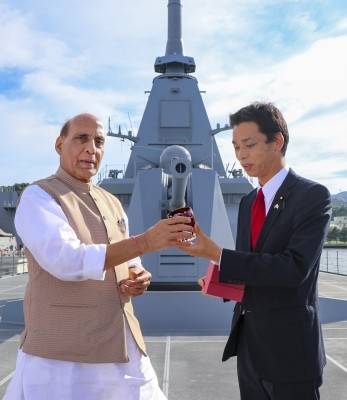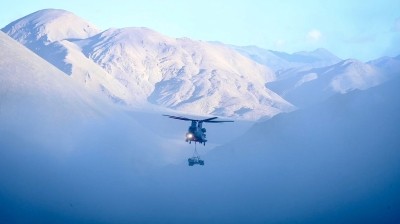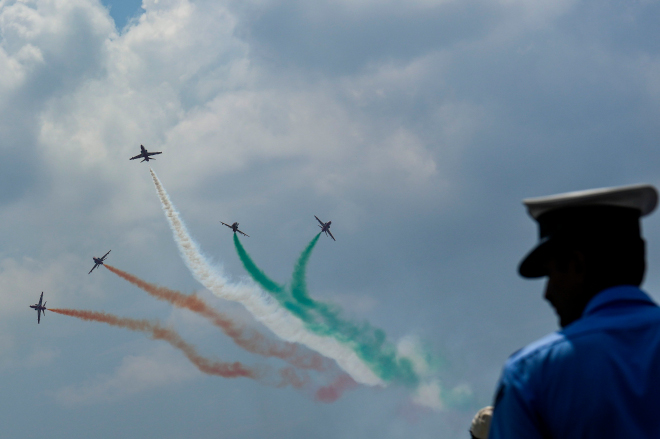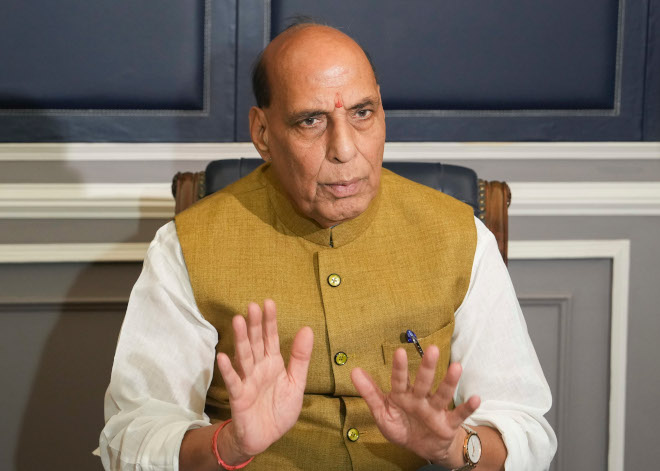
Defence Minister Rajnath Singh during his visit to Japan Maritime Self-Defense Force's Yokosuka Naval base and the warship JS Kumano. Photo: Defence PRO/ Twitter
TOKYO (PTI): Defence Minister Rajnath Singh has visited the Japan Maritime Self-Defence Force (JMSDF) base at Yokosuka and a warship after holding talks with his Japanese counterpart to bolster bilateral defence cooperation.
The JMSDF conducts patrol and surveillance and training on a daily basis to protect the safe and free use of oceans as the lifeline of Japan surrounded by the sea, according to Japan's Defence Ministry website.
Sharing some photographs of his visit, the Defence Minister's office tweeted that Singh visited the JMSDF base at Yokosuka on Friday. He also boarded JS Kumano, a Mogami-class frigate.
India on Thursday extended its support to Japan's plans of expanding and modernising its defence forces, including "counter-strike capabilities", in an apparent bid to deter an aggressive China.
A joint statement issued after the second India-Japan 2+2 foreign and defence ministerial meeting in Tokyo said that the Japanese side expressed its determination to fundamentally reinforce Japan's defence capabilities within the next five years and secure substantial increase of the country's defence budget needed to effect it.
During the meeting, New Delhi and Tokyo agreed to further enhance their security and defence cooperation, including holding the first Air Force fighter exercises, as they reaffirmed their commitment to a rules-based global order that respects sovereignty and territorial integrity of nations, amidst China's aggressive moves in the strategic Indo-Pacific region.
The foreign ministers and defence ministers of the two countries emphasised the need for all countries to seek peaceful resolution of disputes in accordance with international law without resorting to threat or use of force or any attempt to unilaterally change the status quo.
Japan's defence ministry website states the country's trade requires stability of maritime security and an international order since it depends heavily on foreign resources, foreign food and overseas markets that rely on sea lanes of communication for over 90% of its trade.
However, it notes, that there exists challenges to the free use of oceans and freedom of navigation, such as unilateral assertions of countries' rights which are incompatible with the existing international order, frequent occurrence of piracy, terror and smuggling at sea.
"The international community is deepening interdependence among nations in a coordinated fashion on these issues," the website states.
 Previous Article
Previous Article Next Article
Next Article













The Indian Air Force, in its flight trials evaluation report submitted before the Defence Ministry l..
view articleAn insight into the Medium Multi-Role Combat Aircraft competition...
view articleSky enthusiasts can now spot the International Space Station (ISS) commanded by Indian-American astr..
view article